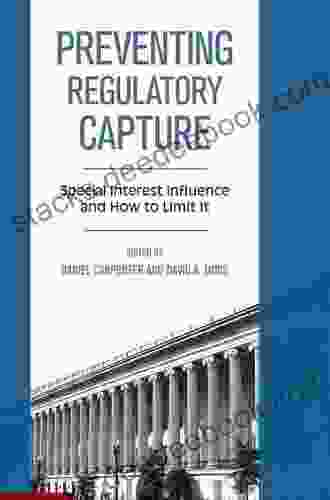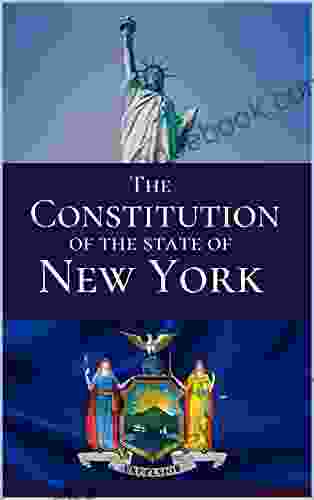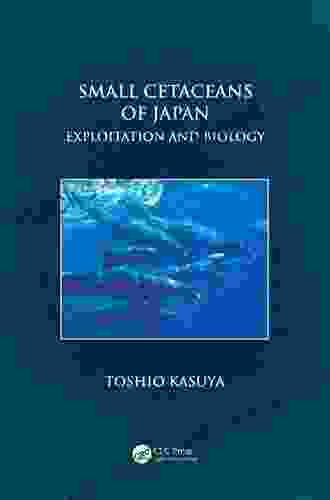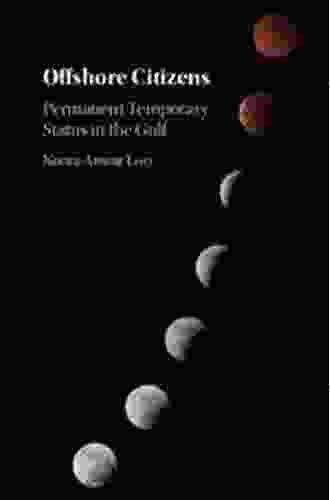Offshore Citizens: Permanent Temporary Status in the Gulf

In the heart of the Arabian Gulf, a unique phenomenon has emerged: the presence of large expatriate communities that have come to define the region's economic and social landscape. These expatriates, often referred to as offshore citizens, have played a pivotal role in the development and prosperity of the Gulf Cooperation Council (GCC) countries. However, their status as temporary residents has created a complex and nuanced situation, raising questions about their long-term rights, identity, and belonging.
Permanent Temporary Status
Offshore citizens are typically skilled professionals or laborers who come to the Gulf countries on temporary work visas. They often hail from countries in South Asia, Southeast Asia, and the Middle East. While their visas may be renewed indefinitely, they are not granted citizenship or permanent residency. This status creates a sense of impermanence and insecurity, as they are always aware of the possibility of their stay being terminated.
4.5 out of 5
| Language | : | English |
| File size | : | 3981 KB |
| Text-to-Speech | : | Enabled |
| Screen Reader | : | Supported |
| Enhanced typesetting | : | Enabled |
| Word Wise | : | Enabled |
| Print length | : | 293 pages |
| Item Weight | : | 1.17 pounds |
| Dimensions | : | 6.3 x 0.93 x 9.16 inches |
| Hardcover | : | 230 pages |
The economic benefits of offshore citizens are undeniable. They fill crucial gaps in the labor market, providing essential skills and expertise that are not available locally. Their contributions to the Gulf economies are significant, ranging from construction and infrastructure development to healthcare, education, and finance. Moreover, they stimulate economic growth by creating new businesses and investing in local industries.
Despite their economic value, offshore citizens face numerous challenges and limitations. They are often subject to discriminatory policies and practices that limit their access to housing, healthcare, and education. Their lack of citizenship or permanent residency also means that they have no political representation or say in the governance of the countries in which they live.
Identity and Belonging
The temporary status of offshore citizens has a profound impact on their sense of identity and belonging. They often feel disconnected from both their home countries and the Gulf countries where they reside. They may identify with their ethnic or cultural roots, but they also recognize that their lives are inextricably linked to the Gulf.
Some offshore citizens have lived in the Gulf for decades, raising families and establishing deep social connections. They consider themselves to be part of the fabric of Gulf society, despite their lack of formal citizenship. However, they may also feel a sense of alienation and exclusion when confronted with the privileges and rights enjoyed by citizens.
Social and Cultural Implications
The presence of a large expatriate population has significant social and cultural implications for the Gulf countries. It has led to a diversification of societies, with different cultures and languages coexisting in close proximity. This diversity has enriched the region's cultural landscape, but it has also created challenges in terms of social integration and cultural preservation.
The temporary status of offshore citizens can lead to social tensions and conflict. Some citizens may resent the presence of expatriates, seeing them as competition for jobs and resources. Others may view them as outsiders who do not fully integrate into society. These tensions can be exacerbated by government policies that favor citizens over expatriates.
Pathways to Citizenship
In recent years, there have been growing calls for pathways to citizenship for long-term offshore citizens. This would provide them with a sense of security and belonging, while also recognizing their contributions to the Gulf economies and societies. Some Gulf countries have made limited progress in this regard, but significant barriers remain.
Citizenship requirements typically include proficiency in the local language, knowledge of history and culture, and a minimum number of years of residency. However, many offshore citizens may struggle to meet these requirements due to language barriers or lack of access to education. Additionally, governments may be reluctant to grant citizenship to large numbers of expatriates, fearing that it could destabilize the political balance or lead to social unrest.
Alternative Models of Residence
If traditional citizenship is not feasible, there may be alternative models of residence that could provide offshore citizens with greater stability and security. These could include long-term residency permits that grant similar rights and privileges to citizens, but do not confer the right to vote or hold public office. Such models have been successfully implemented in other countries with significant expatriate populations, such as Singapore and Australia.
The status of offshore citizens in the Gulf is a complex and evolving issue that raises fundamental questions about migration, identity, and belonging. Their permanent temporary status has economic benefits, but it also creates challenges and limitations. In order to create more just and inclusive societies, Gulf countries need to find ways to recognize the contributions of offshore citizens while also addressing their legitimate concerns and aspirations. Pathways to citizenship or alternative models of residence could provide a way forward, but significant political will and social change are required to overcome the current barriers.
References
>1. International Monetary Fund. (2019). Migration and Economic Development in the GCC Countries: A Survey of the Literature. >2. World Bank. (2018). Migration and Development Brief: Gulf Cooperation Council Countries. >3. Gulf Research Center. (2017). The Status of Expatriates in the GCC: Challenges and Opportunities. >4. Carnegie Endowment for International Peace. (2016). The Gulf's Migrants: The Untapped Potential of Integration. >5. International Organization for Migration. (2015). Migration in the Gulf Cooperation Council: Trends and Challenges.
4.5 out of 5
| Language | : | English |
| File size | : | 3981 KB |
| Text-to-Speech | : | Enabled |
| Screen Reader | : | Supported |
| Enhanced typesetting | : | Enabled |
| Word Wise | : | Enabled |
| Print length | : | 293 pages |
| Item Weight | : | 1.17 pounds |
| Dimensions | : | 6.3 x 0.93 x 9.16 inches |
| Hardcover | : | 230 pages |
Do you want to contribute by writing guest posts on this blog?
Please contact us and send us a resume of previous articles that you have written.
 Book
Book Novel
Novel Page
Page Chapter
Chapter Story
Story Genre
Genre E-book
E-book Newspaper
Newspaper Sentence
Sentence Bibliography
Bibliography Preface
Preface Synopsis
Synopsis Annotation
Annotation Footnote
Footnote Manuscript
Manuscript Scroll
Scroll Codex
Codex Classics
Classics Narrative
Narrative Memoir
Memoir Reference
Reference Dictionary
Dictionary Thesaurus
Thesaurus Narrator
Narrator Resolution
Resolution Librarian
Librarian Catalog
Catalog Card Catalog
Card Catalog Borrowing
Borrowing Scholarly
Scholarly Academic
Academic Reading Room
Reading Room Rare Books
Rare Books Interlibrary
Interlibrary Literacy
Literacy Thesis
Thesis Dissertation
Dissertation Reading List
Reading List Theory
Theory Textbooks
Textbooks Austin Buffum
Austin Buffum Kathleen B Hass
Kathleen B Hass Micah Sanger
Micah Sanger Marie Howe
Marie Howe Steven Gerrard
Steven Gerrard Michael Tanner
Michael Tanner James J Wirtz
James J Wirtz Joy Beth Smith
Joy Beth Smith Geoffrey Howse
Geoffrey Howse Anthony Mcdonald
Anthony Mcdonald Ashesh Bharadwaj
Ashesh Bharadwaj Tom Poland
Tom Poland Jonathan Wilson Hartgrove
Jonathan Wilson Hartgrove Erin Watt
Erin Watt Adrian Vaughan
Adrian Vaughan Roberto Sampaolesi
Roberto Sampaolesi Trish Milburn
Trish Milburn Margot Livesey
Margot Livesey Pedro K Beredjiklian
Pedro K Beredjiklian Michael A Bellesiles
Michael A Bellesiles
Light bulbAdvertise smarter! Our strategic ad space ensures maximum exposure. Reserve your spot today!

 Elliott CarterSpecial Interest Influence: A Comprehensive Guide to Limiting Its Impact on...
Elliott CarterSpecial Interest Influence: A Comprehensive Guide to Limiting Its Impact on... Bill GrantFollow ·7.6k
Bill GrantFollow ·7.6k Francisco CoxFollow ·10.4k
Francisco CoxFollow ·10.4k Chase MorrisFollow ·12.8k
Chase MorrisFollow ·12.8k Cameron ReedFollow ·13.1k
Cameron ReedFollow ·13.1k Douglas PowellFollow ·6.8k
Douglas PowellFollow ·6.8k Felipe BlairFollow ·19.9k
Felipe BlairFollow ·19.9k Dennis HayesFollow ·19k
Dennis HayesFollow ·19k Dillon HayesFollow ·10k
Dillon HayesFollow ·10k

 Amir Simmons
Amir SimmonsMore Zeal Than Discretion: A Closer Look at the Risks and...
Enthusiasm is often seen as a positive...

 Wayne Carter
Wayne CarterYear of the Dog: American Poets Continuum 178
Year of the Dog is a...

 David Foster Wallace
David Foster WallaceThe Constitution of the State of New York: A...
The Constitution of the...

 Harvey Bell
Harvey BellSmall Cetaceans of Japan: Exploitation and Biology
Small cetaceans, including...

 Blake Bell
Blake BellEffortless Elegance: A Comprehensive Guide to Captivating...
In the realm of crocheting,...
4.5 out of 5
| Language | : | English |
| File size | : | 3981 KB |
| Text-to-Speech | : | Enabled |
| Screen Reader | : | Supported |
| Enhanced typesetting | : | Enabled |
| Word Wise | : | Enabled |
| Print length | : | 293 pages |
| Item Weight | : | 1.17 pounds |
| Dimensions | : | 6.3 x 0.93 x 9.16 inches |
| Hardcover | : | 230 pages |












